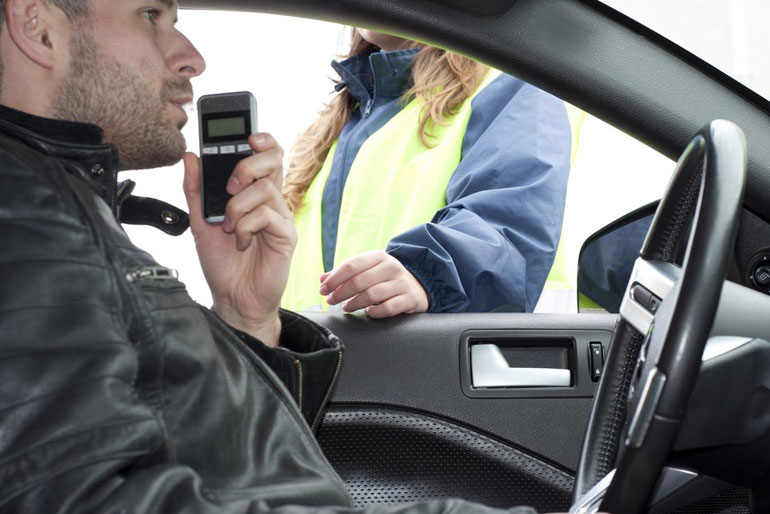Drowsy driving is a serious and often underestimated hazard. The consequences of operating a vehicle while fatigued can be devastating, leading to accidents, injuries, and even fatalities. In this blog post, we list the reasons why drowsy driving is dangerous to the driver and others on the road.
What is Drowsy Driving?
Drowsy driving refers to operating a vehicle while feeling excessively fatigued or sleepy. It is a dangerous and potentially life-threatening behavior as it impairs a driver’s ability to focus, make sound judgments, and react quickly to changing road conditions. Similar to driving under the influence of alcohol or drugs, drowsy driving significantly increases the risk of accidents and collisions. It is a widespread issue that can lead to severe consequences for both the drowsy driver and others on the road.
Cognitive Impairment
One of the primary reasons drowsy driving is extremely dangerous is because it causes significant cognitive impairment. When a person is sleep-deprived, their ability to concentrate, make decisions, and react quickly is severely compromised. This impairment is like the effects of alcohol consumption, impairing judgment and coordination. This means a higher likelihood of making critical errors on the road, leading to life-ending accidents.
Decreased Reaction Time
Drowsy driving leads to a notable decrease in reaction time. Fatigued drivers can have reaction times similar to those under the influence of alcohol. In major cities where traffic conditions can change rapidly, having reduced reaction time can be lethal. The delay in response can make the difference between safely avoiding any road hazard and a potentially serious car accident.
Impaired Decision-Making
Unfortunately, drowsiness impairs a driver’s ability to make sound judgments. They may struggle to assess risks accurately, leading to risky maneuvers or failure to anticipate potential hazards. This compromised decision-making process can have severe consequences, especially in complex traffic situations or adverse weather conditions.
Microsleep Episodes
Drowsy driving often leads to microsleep episodes, which are brief, involuntary movements of sleep that can last anywhere from a fraction of a second to several seconds. These episodes can occur without warning, causing drivers to momentarily lose consciousness. In a high-stakes environment, even a momentary lapse of attention can result in a catastrophic accident.
Increased Risk Of Collisions
The combination of cognitive impairment, decreased reaction time, and impaired decision-making significantly elevates the risk of collisions. Drowsy driving is a leading cause of accidents on Seattle’s roads, often resulting in severe injuries and, tragically, loss of life. These accidents can have long-lasting impacts on victims and their families, leading to extensive medical expenses, emotional trauma, and other hardships.
Compensation Victims May Be Entitled To
Experiencing a personal injury accident can result in substantial physical, emotional, and financial hardships. In Washington, personal injury lawsuits offer a means to seek compensation for these losses. The Seattle personal injury attorneys from Washington Injury Law list the types of compensation accessible through such claims encompass the following key areas:
- Medical Expenses: This includes both present and anticipated medical costs linked to your accident. It encompasses expenses such as medications, various forms of treatment, surgeries, rehabilitation, and physical therapy sessions. Ensuring you receive the necessary care without bearing the financial burden is a crucial component of compensation.
- Lost Wages: Injuries can lead to time away from work for recovery. Compensation accounts for income lost during this period. Additionally, if your injury affects your long-term earning capacity, it also covers future earnings that you may not be able to attain due to the accident’s impact.
- Property Damage: If your personal belongings or vehicle were damaged in the accident, compensation is available for necessary repairs or replacements. This ensures that you are not left with additional financial strain as a result of the incident.
- Pain and Suffering: These damages encapsulate both physical and emotional distress caused by the accident. This category includes chronic pain, post-traumatic stress disorder (PTSD), anxiety, and mental anguish. While not as easily quantifiable as medical expenses, these forms of suffering are just as valid and deserving of compensation.
Drowsiness is like alcohol in how it impairs thinking, leading to poor judgment and coordination. Reaction times slow down, making it harder to respond quickly in traffic. Additionally, impaired decision-making and microsleep episodes make drowsy driving even riskier. These factors can lead to serious accidents. For those affected, seeking compensation through a personal injury lawsuit is important. This can cover medical expenses, lost wages, property damage, and pain and suffering. Remember, your safety and well-being should be your top priority. Stay safe and alert on the roads.







